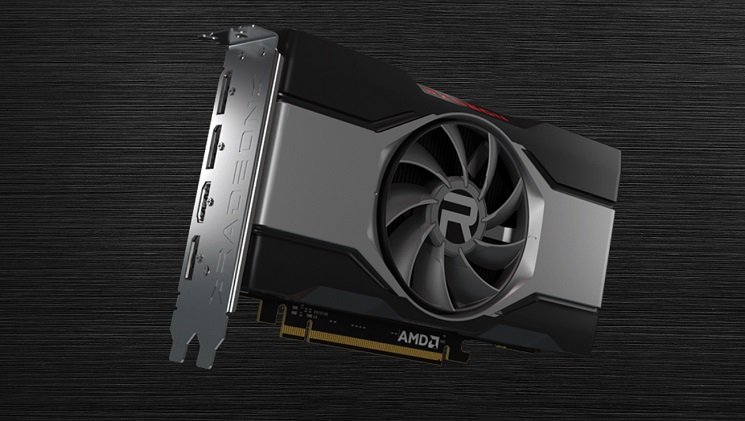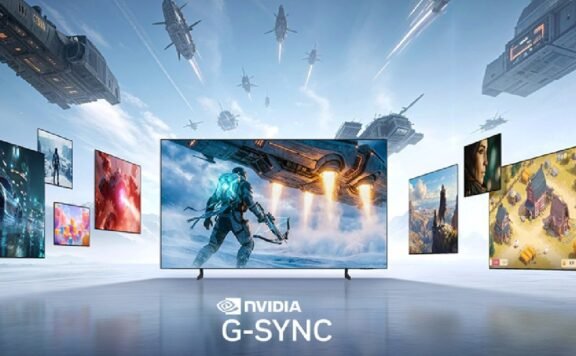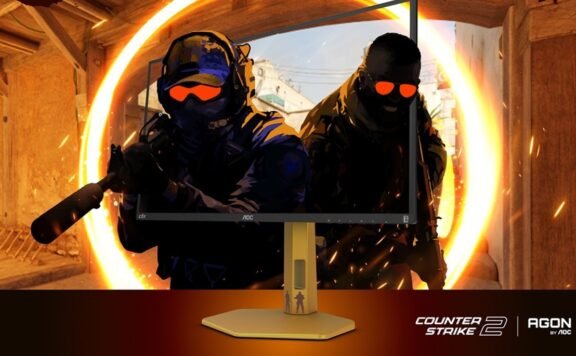AMD today announced the AMD Radeon RX 6600 XT graphics card, designed to deliver the ultimate high-framerate, high-fidelity and highly responsive 1080p gaming experience. The AMD Radeon RX 6600 XT graphics card is built on breakthrough AMD RDNA 2 architecture, the only gaming architecture that spans from next-generation desktop PCs, laptops and consoles to mobile devices and automotive infotainment systems.
Offering 32 MB of high-performance AMD Infinity Cache, 8 GB of high-speed GDDR6 memory, AMD Smart Access Memory and other advanced features, the AMD Radeon RX 6600 XT graphics card is built for the ever-increasing demands of modern games. It also supports the new cutting-edge AMD FidelityFX Super Resolution open-source spatial upscaling solution, which is designed to boost framerates and deliver high-quality, high-resolution gaming experiences.
The AMD Radeon RX 6600 XT graphics card offers up to 15 percent higher performance on average with max settings across select AAA titles compared to the competition. It also provides 125 FPS on average across a wide range of modern AAA titles, pushing the boundaries of mainstream gaming by enabling incredible, high-refresh rate 1080p performance and breathtaking visual fidelity.
“1080p has long been the most popular resolution for PC gaming, and in 2020 more than two-thirds of the gaming monitors shipped were at this resolution,” said Scott Herkelman, corporate vice president and general manager, Graphics Business Unit at AMD. “However, the most popular older-generation 1080p graphics cards can struggle to even hit 60 FPS in modern games. The Radeon RX 6600 XT raises the bar for 1080p gaming. It was specifically designed to deliver the ultimate 1080p gaming experience for all gamers, offering powerhouse performance and advanced features to bring beautiful, complex and hyper-realistic worlds to life.”
 Epic 1080p Performance and Incredible Visual Fidelity
Epic 1080p Performance and Incredible Visual Fidelity
The AMD Radeon RX 6600 XT graphics card is designed to deliver the optimal combination of performance and visual fidelity for an exceptional gaming experience. It offers up to 2.5X faster performance in select titles compared to the popular older-generation competitive offering, making it an ideal upgrade for gamers who want the best possible 1080p gaming performance to power today’s most demanding games. Key features and capabilities include:
- AMD FidelityFX– Now supported by 50 titles and game engines, AMD FidelityFX is an open-source toolkit of visual enhancement effects for game developers available at AMD GPUOpen. Offering broad support on more than 100 AMD processors and GPUs, as well as on competitor GPUs, the new AMD FidelityFX Super Resolution upscaling technology delivers 2.4X higher performance on average in “Performance” mode at 4K across select titles compared to native resolution.
- AMD Smart Access Memory– Unlocks higher performance when pairing AMD Radeon RX 6000 Series graphics with AMD Ryzen 5000 or select Ryzen 3000 Series Desktop Processors and AMD 500-series motherboards. Providing AMD Ryzen processors with access to the entire AMD Radeon RX 6600 XT high-speed 8 GB GDDR6 graphics memory can deliver a performance uplift of up to 11 percent on average in select titles.
- AMD Infinity Cache– 32 MB of last-level data cache integrated on the GPU die reduces latency and power consumption to enable higher gaming performance than traditional architectural designs.
- DirectX 12 Ultimate Support– Enables games to deliver mind-blowing visuals with real-time DirectX Raytracing (DXR), Variable Rate Shading and other advanced features, elevating games to a new level of realism.
- AMD Radeon Anti-Lag– Helps decrease input-to-display response times, making games more responsive and offering a competitive edge in gameplay.
- AMD Radeon Boost– AMD Radeon Boost with support for Variable Rate Shading can provide up to a 48-percent performance increase in Warframe during fast-motion gaming scenarios by dynamically reducing image resolution or by varying shading rates for different regions of a frame, increasing framerates and fluidity, and bolstering responsiveness with virtually no perceptual impact on image quality.






